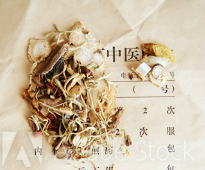biospectrumasiaFebruary 11, 2019
Tag: Lunar New Year , Traditional Chinese Medicine , Cancer treatment , china
The Lunar New Year welcomes a focus on the wellbeing of the entire body leading to renewed discussions about the benefits of traditional Chinese medicine (TCM).

The popularity of TCM was recently highlighted by a study showing that 42% of all Singaporeans are combining a potentially dangerous mix of Chinese and Western medicine during the course of cancer treatment. The study also shows 74% of locals believe that TCM complements conventional cancer treatment.
The research, which was commissioned by medical case management company Medix, provides troubling insight into consumer preferences and an apparent misunderstanding of the dangers associated with mixing incompatible treatment methods during cancer treatment.
The CEO of Medix, Sigal Atzmon said the results are concerning, and the dawn of a new Lunar Year provides an opportunity for doctors, patients, hospitals and the Government to rethink the role of Chinese medicine in contemporary cancer treatment.
"The overwhelming body of medical evidence shows there can be serious consequences for patients who combine conventional western treatments with traditional Chinese medicine," Ms Atzmon said.
Medix Global Medical Director, Professor David Zeltser noted that while Western medicine and TCM can be complementary during the treatment of certain conditions, in some cases the two disciplines can work against one another during the treatment of cancer.
"For example, Asian Ginseng is commonly used in Chinese medicine to prevent cancer and restore strength. However, this induces the activity of CYP3A in the liver, which in turn reduces the effectiveness of many proven chemotherapy drugs," Prof Zeltser said. "It’s like pulling at two ends of a rope."
Data from the World Health Organization (WHO) continues to highlight stubbornly high cancer mortality rates in Singapore compared with other nations. The risk of dying from cancer before the age of 75 in Singapore is 34.1%, compared with 28% in Australia, 27.5% in Canada and 25.5% in the US and Korea.
"Chinese medicine continues to play an important role in health and wellbeing, but should not be used in a way that interferes with evidence-based treatments such as chemotherapy. The first steps in cancer treatment are crucial and blind faith in a potentially deadly cocktail of medications can cost lives.
"Western pharmaceutical products are required to meet the highest standards of evidence-based support before being approved for use, with industry estimates suggesting it costs approximately USD $2.6 billion to bring a new drug to market.
"Traditional Chinese medicine is not subject to the same rigorous, evidence-based requirements. As a result, the amount of research funding for TCM almost pales by comparison. If we are to improve medical understanding about the interaction of Western and Chinese medicine, more research funding and better regulation is urgently needed.
"Change needs to happen," says Ms Atzmon. "Government support is desperately needed to increase awareness for patients and to educate doctors on best practice so they can explain the potential risks and opportunities of combining medicines. This means more data, better regulation of cancer medications and standard treatment protocols, saving lives," Ms Atzmon concluded.
Register as Visitor to CPhI China 2019!

-----------------------------------------------------------------------
Editor's Note:
To apply for becoming a contributor of En-CPhI.cn,
welcome to send your CV and sample works to us,
Email: Julia.Zhang@ubmsinoexpo.com.


Contact Us
Tel: (+86) 400 610 1188
WhatsApp/Telegram/Wechat: +86 13621645194
Follow Us:




 Pharma Sources Insight January 2025
Pharma Sources Insight January 2025


